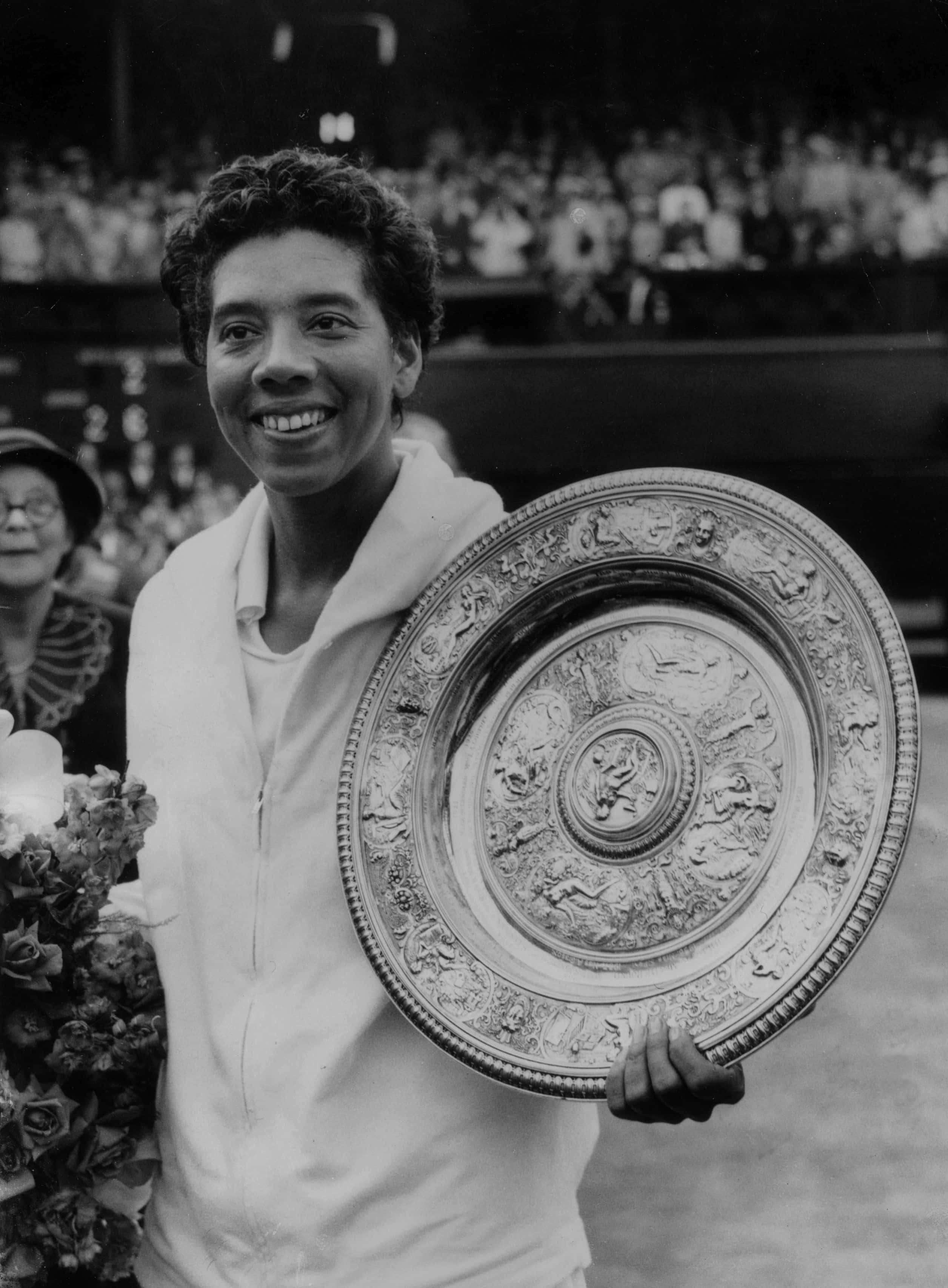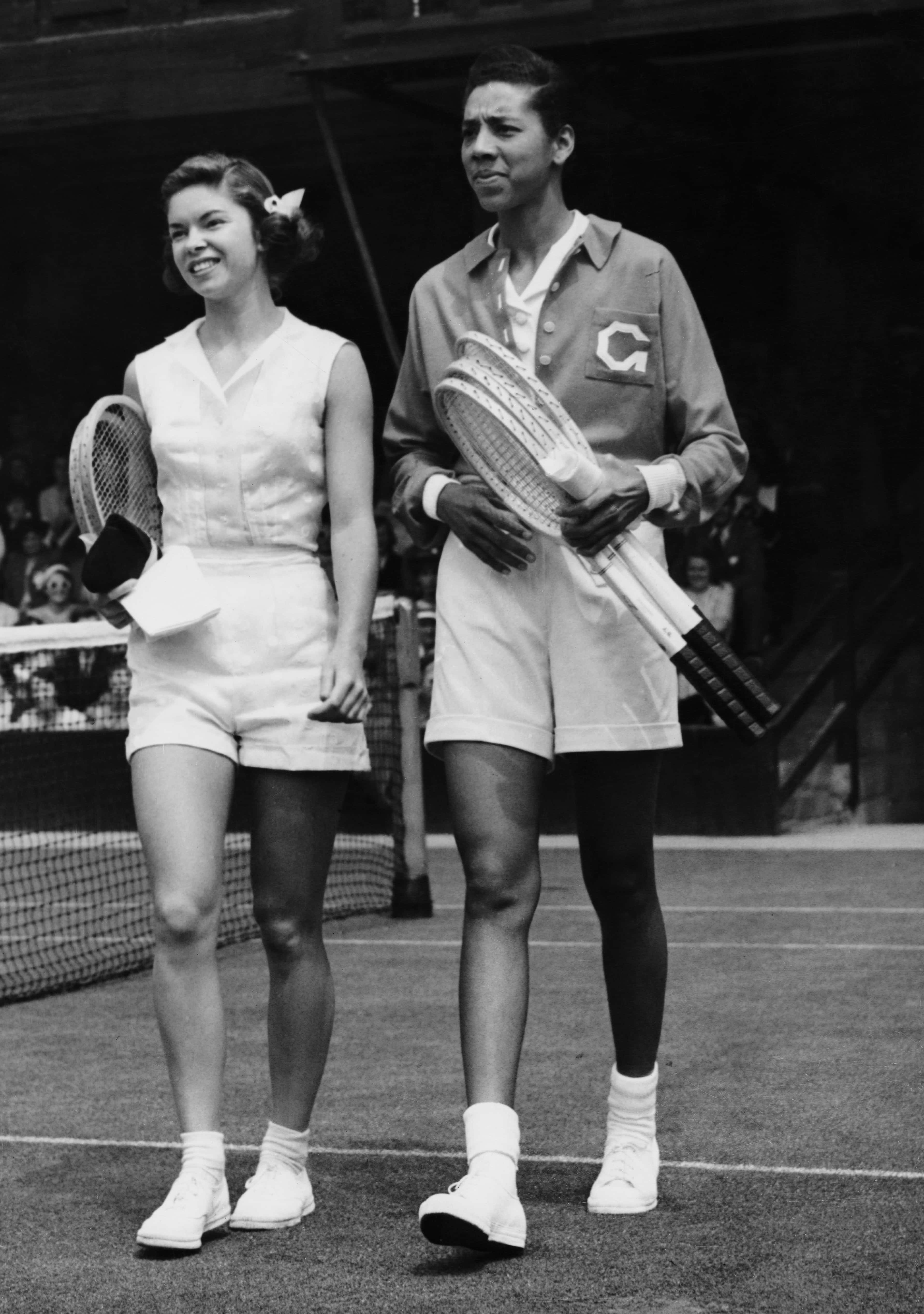Celebrating Althea Gibson: How the 1st Black player to enter a national tennis tournament broke racial barriers

Nothing came easy for the legendary Althea Gibson. The time between the 1940s and 60s was tumultuous to athletes, especially for Althea thanks to racial discrimination being a key presence. But what she did was a beyond belief and a phenomenon nobody saw coming. Gibson created history when he became the first black person to win the French Championships. She followed that up by winning Wimbledon and the US Nationals becoming the first black woman to win either of these tournaments.
To ice the cake, she did an encore by winning again in 1958. However, the stand-out moment came in 1950. August 22 was a day that Gibson and the tennis world wouldn't forget as the USLTA finally accepted her into their annual championship making her the first African-American player to play in a US National Tennis Competition.
Her childhood is a story in itself. Born on August 25, 1927, Gibson's family moved to Harlem when she was three. Gibson wasn't much of a fan of school and she rightly paid the price as her dad would "whip" her. But in her logic, she deserved every bit of it, according to an ESPN profile of her.
While school wasn't, sports was definitely in her DNA as she realized she had a natural inclination to paddle tennis, a sport she was good at. A tennis racket came in next and she put it to good use by playing in the girls' tournaments. Her solid gameplay saw her garner the attention of Hubert Eaton and Robert Johnson, two doctors who were renowned in the black tennis community.

Under them, Gibson meteorically rose as she notched up ten straight ATA Championships. The real challenge was in 1950 when she was denied entry to the United States National Championships, now prominently known as the US Open. At this time, while the USLTA was strictly against racism, the players were invited based on the points they accumulated. The only disadvantage was these tournaments were held at whites-only clubs. Gibson found support from retired tennis champ, Alice Marble.
It was Marble's letter and support from ATA that saw Gibson receive an invite. According to History, she wrote, "if Gibson posed a challenge to current tour players, "it’s only fair that they meet this challenge on the courts." The debut was finally made and while she lost to Louise Brough in the second round, who was the reigning Wimbledon champ, Gibson's game received global recognition and was widely reported. She called it a day after 56 national and international singles and doubles titles in 1958.
What Gibson did was pave the way for more African-American players to play the sport they loved. After her retirement, it took 43 years for Serena Williams, another African-American woman to achieve a feat by winning her first US Open in '99 and she had Gibson's support when she faxed a letter and a list of questions to her. This was followed by her sister, Venus Williams who won the US Open in 2000 and 2001 repeated Gibson's achievements.

Tennis legend, Billie Jean King credited Gibson for being the pioneer. "If it hadn't been for her, it wouldn't have been so easy for Arthur (Ashe) or the ones who followed." What Gibson did was pave the way for African-American women in tennis. The best way to end this is by recollecting the New York Times columnist, William C Rhoades' quote from his analysis of women in sport.
"Althea Gibson and Wilma Rudolph are, without question, the most significant athletic forces among Black women in sports history," he wrote."While Rudolph's accomplishments brought more visibility to women as an athlete... Althea's accomplishments were more revolutionary because of the psychosocial impact on Black America. Even to those Blacks who hadn't the slightest idea of where or what Wimbledon was, her victory, like Jackie Robinson's in baseball and Jack Johnson's in boxing, proved again that Blacks, when given an opportunity, could compete at any level in American society."










